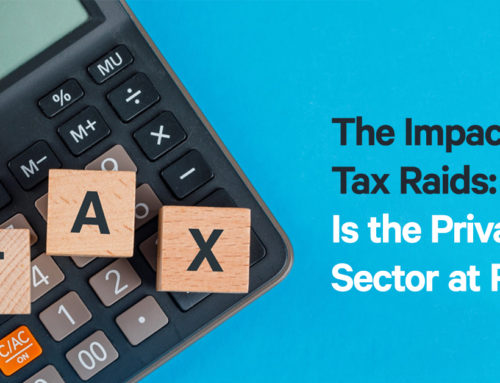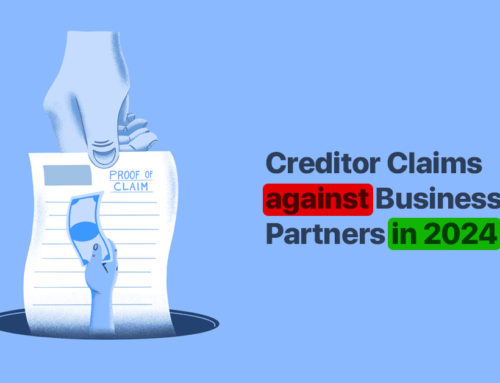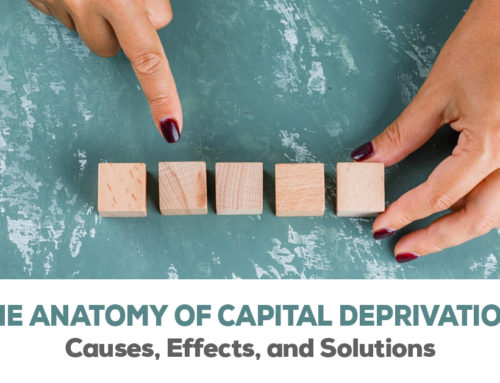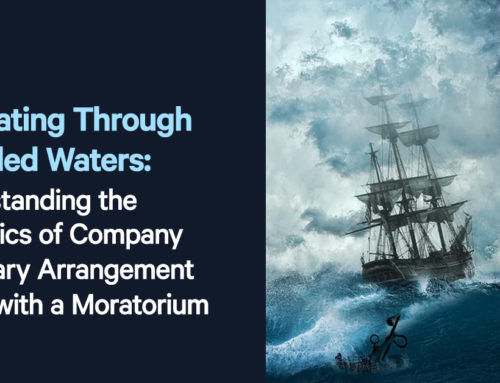If your company is experiencing financial distress or going through tough times, then you may be considering getting some expert advice to help you navigate these choppy waters. This would ideally be in the form of an experienced insolvency practitioner.
However, unless you have dealt with an insolvency practitioner before, you may be unsure what it is they do and how they can help your business. When times are hard, the idea of paying someone a fee can seem like the wrong move. However, an experienced insolvency expert will be more than worth the investment.
Before you make any decisions, as a business owner it is always a good idea to find out more about what an insolvency expert will do for you and what value they can bring to your business, particularly during the first stages of financial distress.
What is an insolvency practitioner?
Insolvency practitioners, often referred to as IPs within the industry, are people who are licensed to act on behalf or either companies or individuals when they are experiencing acute financial distress. As well as finding solutions to these difficult situations, they can also help to liquidate or wind up the company in the best way possible – often through using Members’ Voluntary Liquidation to help keep hold of profits.
In general, a company director will approach an IP when finances are getting very difficult to handle and the business is heading towards trouble. However, there are times such as forced liquidation, when the courts will appoint an Official Receiver who will act as the liquidator.
Does an insolvency practitioner need to be qualified?
The short answer is yes, they do. But the route towards qualification can be very varied. Many IPs will have accountancy qualifications such as ACCA, ACA or CIMA. However, this is not a legal requirement and an accountancy qualification is not necessary to become an IP.
However, IPs will need to pass the Joint Insolvency Examination Board exams, known as JIEB. These consist of two papers which both need to be passed in order to qualify. The exams aim to test knowledge of both personal and corporate insolvency law and the application of the law in real world scenarios. The JIEB exams are renowned for being very tough to ensure that only highly qualified people are able to take up positions in the field. Candidates will need to demonstrate in-depth detail and understanding of complex situations and how to act in accordance with the law at all times.
As a business owner, it is very important that you check these credentials and ensure the JIEB is in place before you appoint any one to act as an IP on your behalf. There are companies that will offer insolvency advice but are not JIEB registered.
Is the industry regulated?
Again, yes, it is. Insolvency in the UK comes under the Insolvency Act of 1986. What this means is that IPs are subject to regular inspections by their governing bodies. These include the IPA, ICAEW and ICAS. All of these adhere to the same standards of performance and legal requirements. All IPs are required to meet these standards and act with the correct level of professional conduct.
The cost of an experienced insolvency expert in the UK
As you might expect, the costs of an insolvency expert in the UK will vary according to a number of factors. These can be the amount of work that will be required (as dictated by the severity of your situation and the amount of time involved to do the work). It can also depend on how experienced the IP is and even what part of the country they operate in.
However, you can expect to pay somewhere in the region of £5,000 for a straightforward CVL service and slightly less for an average MVL.
CVAs are usually more time intensive with fees adding up over time, making them more expensive than a shutdown liquidation.
You also need to know that in some cases, costs will be deducted from the amount you have agreed to pay the creditors.
In most cases, company assets are used to finance the cost of the insolvency procedure. If there are insufficient funds, then company directors may be required to meet the shortfall in payments.
When to contact an IP?
Knowing when to call an IP is very important. It is often done when financial distress gets so pronounced that there is little alternative. This is the time when an IP can step in to alleviate the stress and hardship.
However, in general the earlier in the process you can call them, the better it will be. They will step in and recommend the best course of action for all concerned and the sooner they are involved, the greater the chances of finding the most satisfactory outcome. Act early and you will be giving your company the very best chance of survival. This is because as time goes on and the situation gets more acute, there are fewer options available to you.
If you leave it too late, then a complete shutdown in the form of a CVL may be the only option left open to you.
How to find an experienced IP
You can often get recommendations for an IP from accountants, solicitors and other professionals with whom you have dealings. However, even if it is a personal recommendation, you should still be vigilant and make sure you do all the required background checks.
You can also find them online but the same rules apply. Make sure they are qualified and registered with the required bodies. Ask to see examples of their work and if possible, get some testimonials from other clients.
If you would like to know more about what an IP does, when might be the time to call one and how to find suitable IPs for your business, then get in touch with a member of our team here at Leading Business Services on 01603 552028. We are always happy to help.






